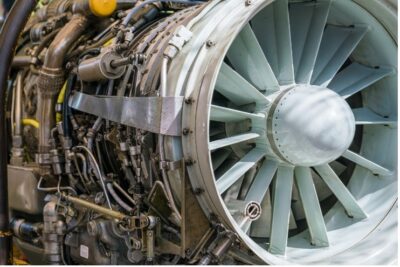Section 232 Investigation of Commercial Aircraft, Jet Engines and Parts
By Bruce Leeds, Senior Counsel, Braumiller Law Group
In a recent Federal Register notice the Bureau of Industry & Security (BIS) of the Department of Commerce announced that “On May 1, 2025, the Secretary of Commerce initiated an investigation to determine the effects on the national security of imports of commercial aircraft and jet engines, and parts for commercial aircraft and jet engines. This investigation has been initiated under section 232 of the Trade Expansion Act of 1962, as amended (Section 232).” The investigation may take up to 270 days but it can be concluded sooner.
What is Sec. 232? Section 232 of the Trade Expansion Act of 1962 (19 U.S.C. §1862) authorizes the President of the United States to take action to adjust imports if they are deemed to threaten national security. This typically involves investigations by the Department of Commerce to determine if imports are in such quantities or under such circumstances as to threaten national security. If the Commerce Secretary finds that a threat exists, the President can then impose tariffs, quotas, or other import restrictions.
This means that imported aircraft components and engines could be subject to additional duties or other restrictions, such as quotas. Is this a good thing?
The commercial aircraft production landscape is a complicated one. The major competitors are Boeing and Airbus. A substantial portion – up to 60% – of a Boeing 787 consists of imported parts and components. Airbus is a European company however it has a major manufacturing facility in Mobile, Alabama, that produces commercial aircraft, specifically the A320 family and the A220. Likely those Airbus aircraft also incorporate a large number of imported components.
So why would a US company use so many imported components in building aircraft? One reason is that certain components are selected because they are the most efficient or effective at what they do. In other words, the decision to purchase components from a foreign source is based on merit. This could be a factor in deciding to buy GE engines made in the US or Rolls Royce engines made in UK. Which engine will provide the best performance for the specific aircraft being built? Other components may only be available from a single source; thus, the aircraft manufacturer has no other choice.
Perhaps the major driver causing US based companies to obtain components from non-US sources has to do with marketing and offsets. For example, if Boeing and Airbus want to sell aircraft to an Italian airline, the Italian customer (and government) will want there to be Italian content in the aircraft. If Boeing offers to have a significant Italian content in the aircraft and Airbus does not, Boeing is likely to win the contract. Conversely, Airbus could offer to purchase Italian origin components to be used in all the A320 aircraft produced in Alabama and it may win the business.
Imposition of special tariffs on imported aircraft parts and engines could have a negative effect on the industries the Sec. 232 action is supposed to protect. As an example, let’s say the additional Sec. 232 duty is 20%. If 60% of the components in a Boeing 787 are imported, what effect will that have on the price of the aircraft in a very competitive field? Similarly, if a significant portion of the components used in building A320 aircraft in Alabama are imported, the additional duty could cause Airbus to lose sales of that aircraft and lay off workers at the Mobile facility.
Let’s hope that reasonable minds will prevail on this issue and that the government will not seriously damage a US industry by measures meant to help it.

